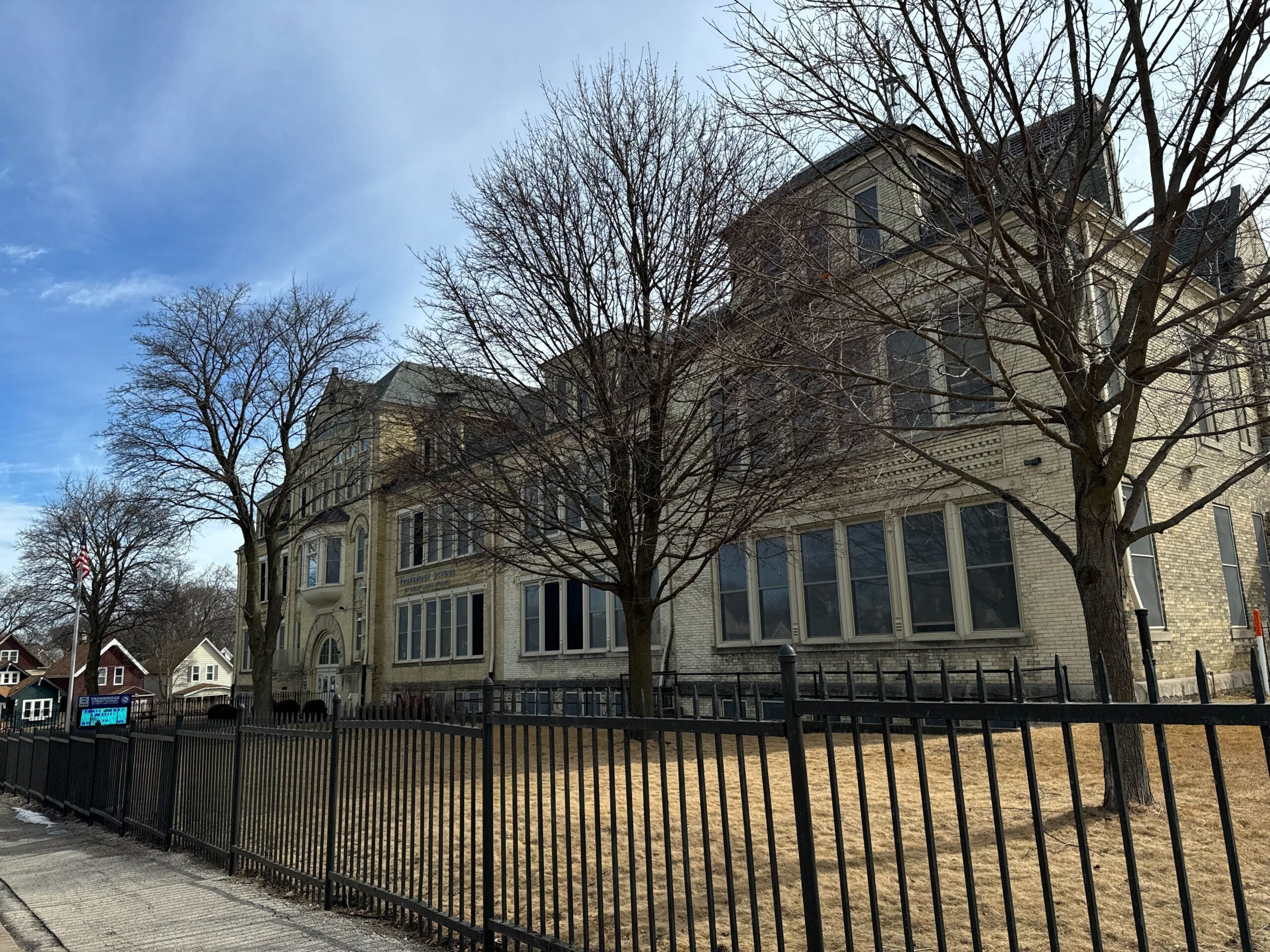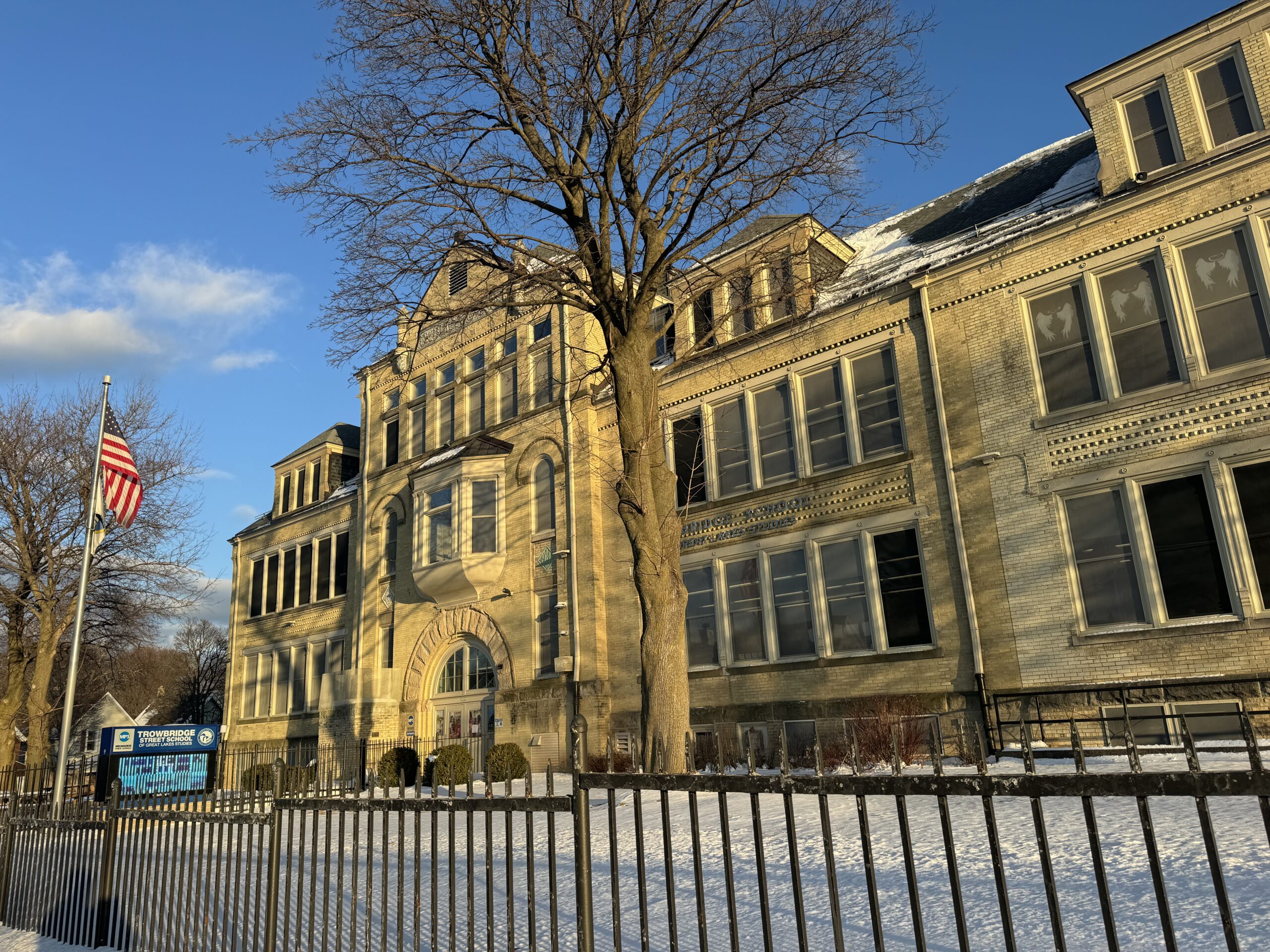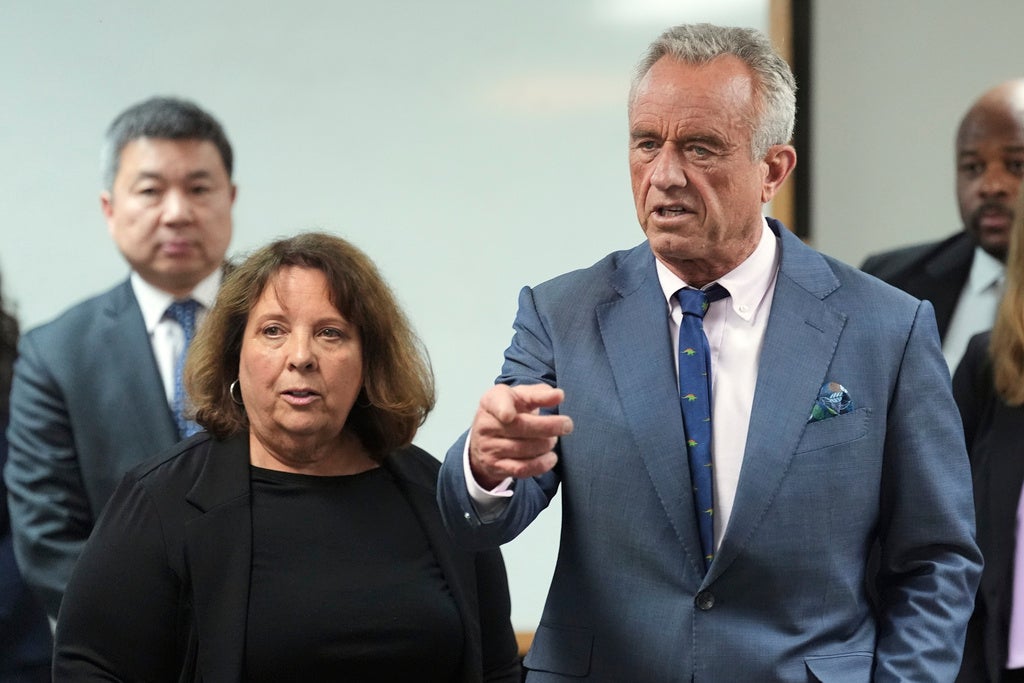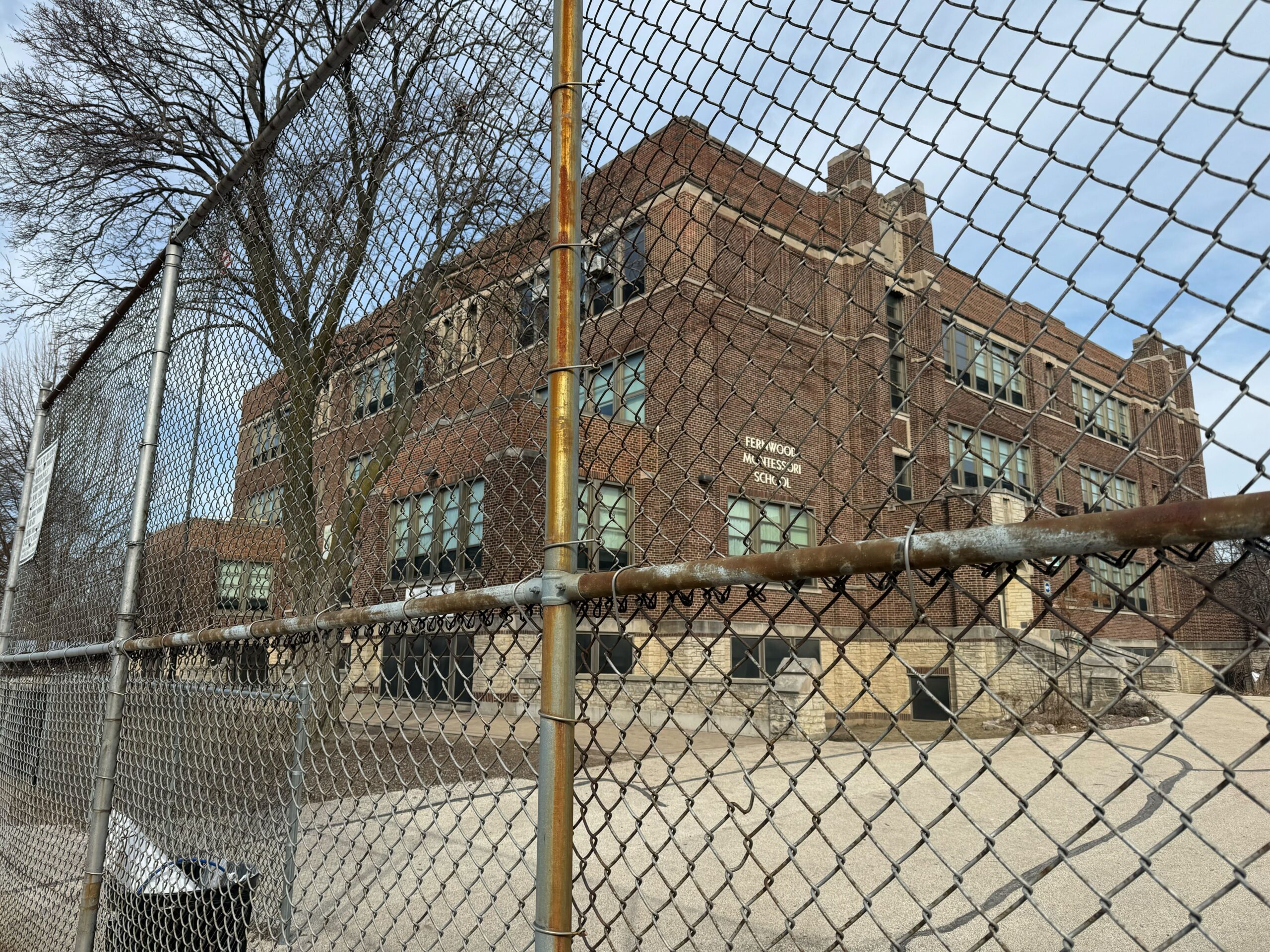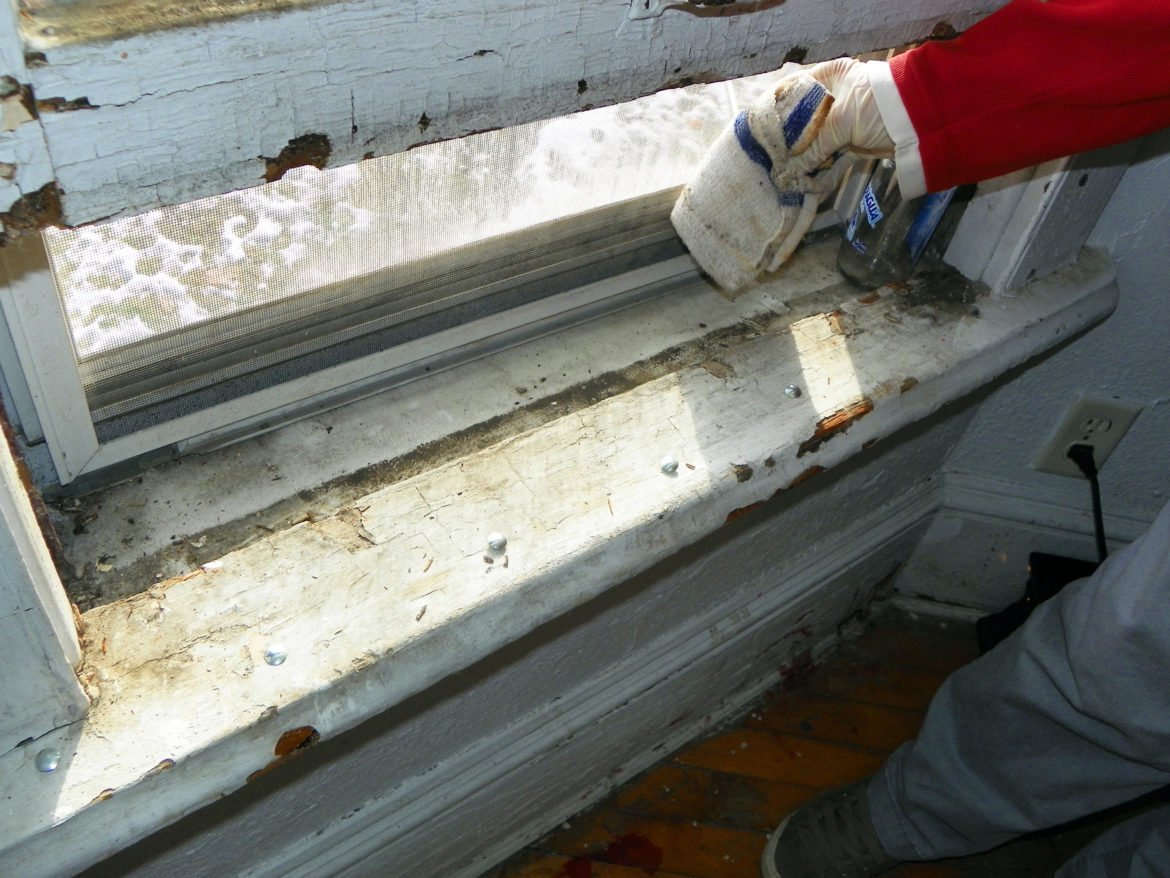A public school in Milwaukee is temporarily closing due to “unsafe lead dust levels.” It’s the latest development in a series of announcements about lead poisoning dangers in city schools.
The Trowbridge Street School of Great Lakes Studies, in the city’s Bay View neighborhood, teaches kindergartners through eighth graders a curriculum focused on freshwater ecology. The city’s Health Department informed Milwaukee Public Schools’ parents and staff of the temporary closing in a letter Thursday.
Students will be transferred to another site starting Monday.
News with a little more humanity
WPR’s “Wisconsin Today” newsletter keeps you connected to the state you love without feeling overwhelmed. No paywall. No agenda. No corporate filter.
A Trowbridge student tested positive earlier this month, prompting routine Health Department measurements of lead dust at the school.
Measurements were taken and MPS did remediation work — but then the Health Department found two irregularities.
A school worker was “scraping paint without proper containment,” said health commissioner Mike Totoraitis. And the department found more lead dust on surfaces that had already been repainted and sealed by MPS.
“Whatever process that had been used successfully in the other schools had not been used in Trowbridge,” Totoraitis told reporters Friday.
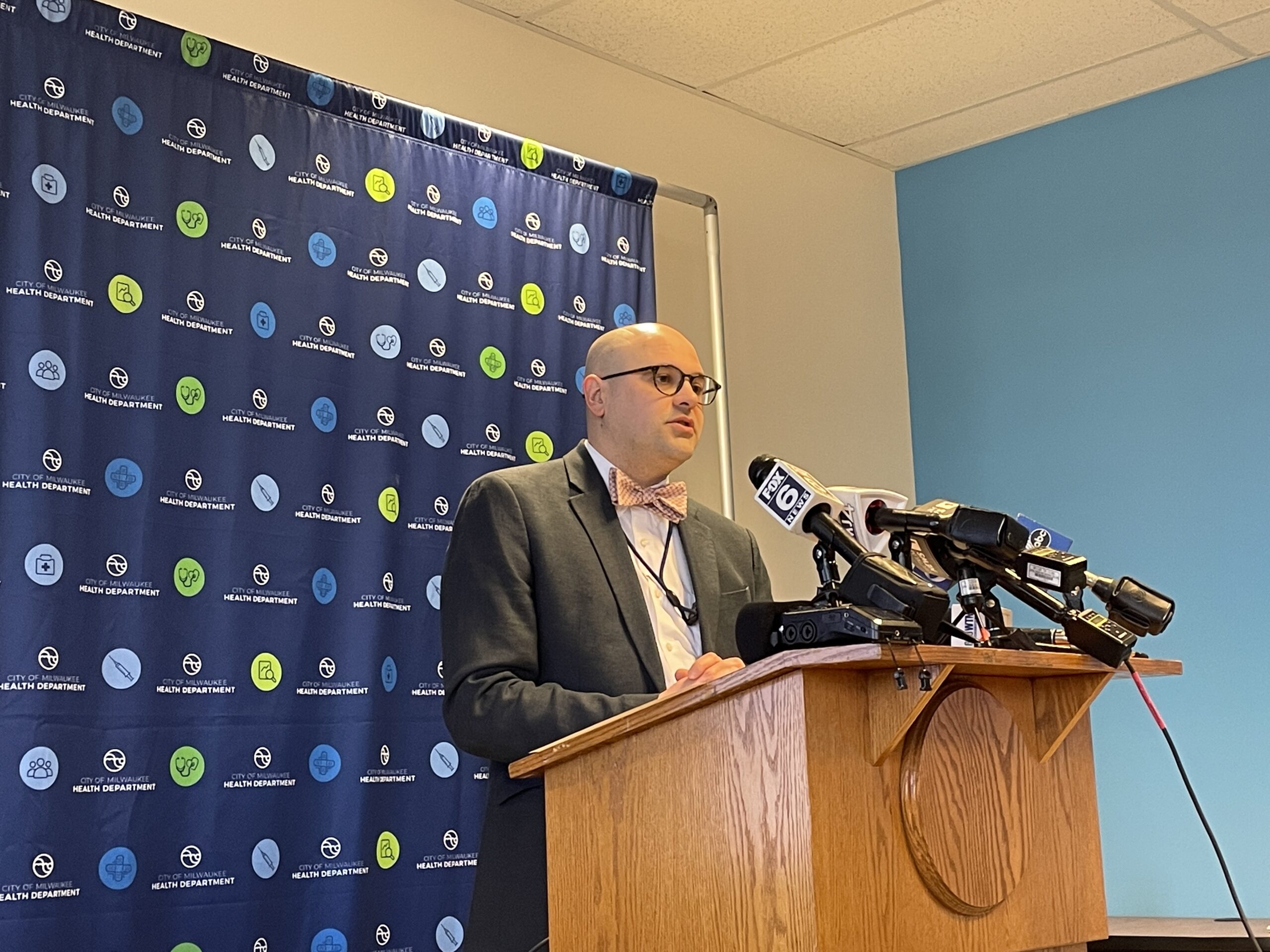
Milwaukee’s Health Department monitors blood lead levels of tested children and measures lead dust at schools when remediation work at homes doesn’t yield lower blood levels.
Trowbridge is the fourth MPS school to be investigated after a lead poisoning case.
Lead dust levels at the first school tested, Golda Meir School, have “significantly” improved, said Tyler Weber, the Health Department’s deputy commissioner for environmental health.
The other lead-contaminated schools are Kagel Elementary School and Maryland Avenue Montessori School.
Weber said Trowbridge would reopen late next week at the earliest. In the meantime, students will take classes at the Wisconsin Conservatory of Lifelong Learning, seven miles away.
Lead exposure can cause serious health issues for children, including cognitive damage, hearing and speech problems and slowed growth and development.
Lead dust a challenge in aging MPS building
Totoraitis stressed that lead contamination at Trowbridge was not higher than at the other three schools. The closing was due to continued presence of lead dust after remediation.
Michael Harris, MPS’ interim chief school administration officer, said the district would restart remediation work over the weekend.
“We’re going to revisit our previous practices, improve upon those,” he said.
Harris had told city alders last week that MPS employs two lead inspectors and five painters, down from more than 15 painters at one point.
He’d also said 85 MPS schools were built before 1978 — the year lead paint was banned.
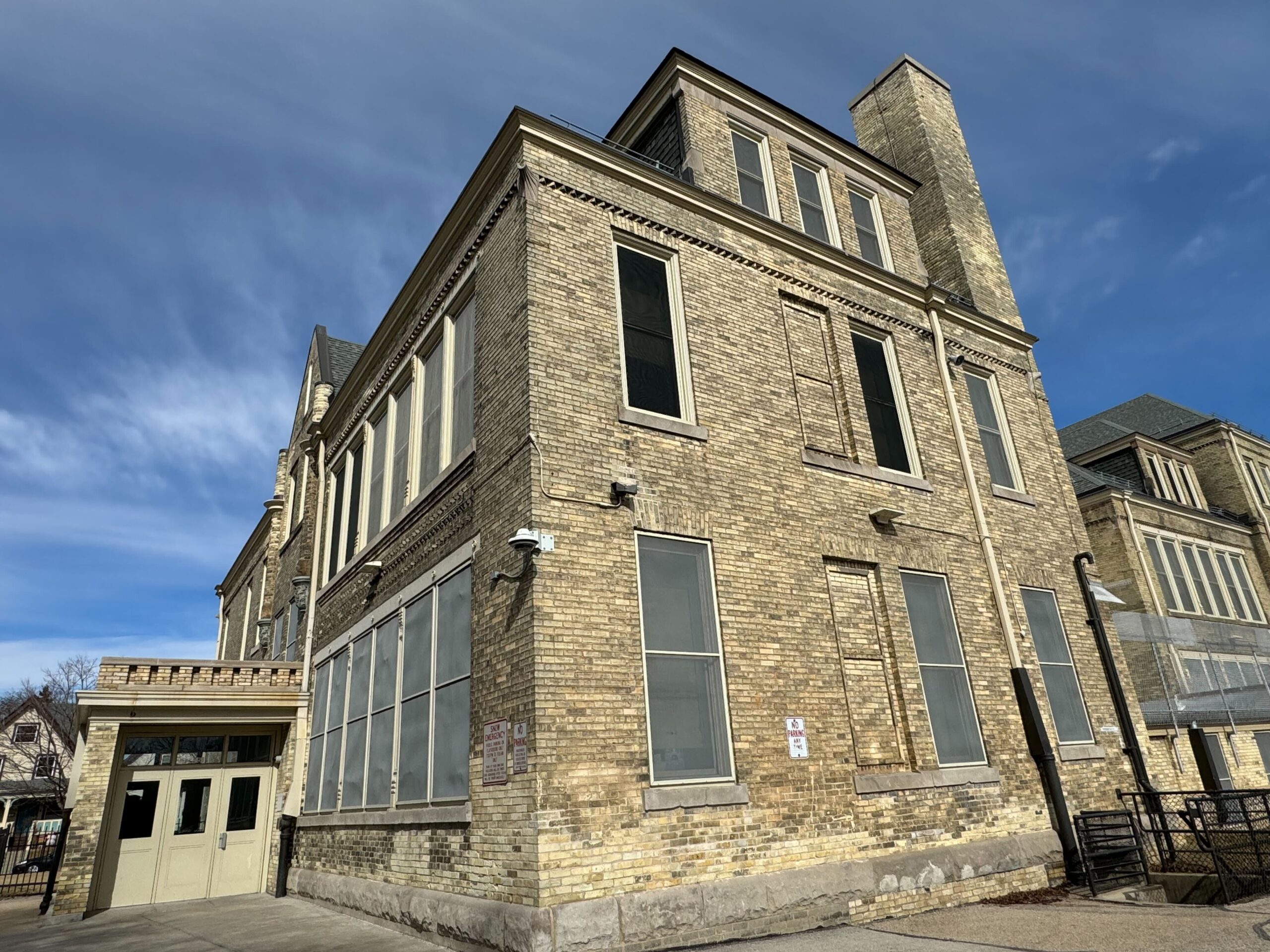
The district has until March 21 to send the Health Department a plan for how to clean lead paint in those schools.
Gov. Tony Evers, in his budget proposal earlier this month, proposed spending $300 million to remove lead from schools, homes and child care centers.
A statement from his office said more than $6 million would go to local health departments to “support lead poisoning intervention and response.”
Blood lead testing sites to open soon
Totoraitis said the department is “very close” to having a contract with Children’s Hospital of Wisconsin to operate blood lead testing sites. An announcement on those sites may come next week, he said.
The department upped its blood lead testing recommendations last fall.
Totoraitis said his department hasn’t found any more lead-poisoned MPS students besides those at the four schools under investigation.
Teddy Monacelli plans for his daughter, a kindergartner at Trowbridge, to get tested.
He praised the school’s communication to parents throughout the lead remediation process.
“It’s not, like, a dusty, dirty, broken-down school,” he said. “It’s a very nice school.”
Monacelli also emphasized his support for his daughter’s teachers and principal.
“It’s really unfortunate to hear about this. I feel bad for the school,” he said. “But we really do like the school a lot.”
Wisconsin Public Radio, © Copyright 2025, Board of Regents of the University of Wisconsin System and Wisconsin Educational Communications Board.

